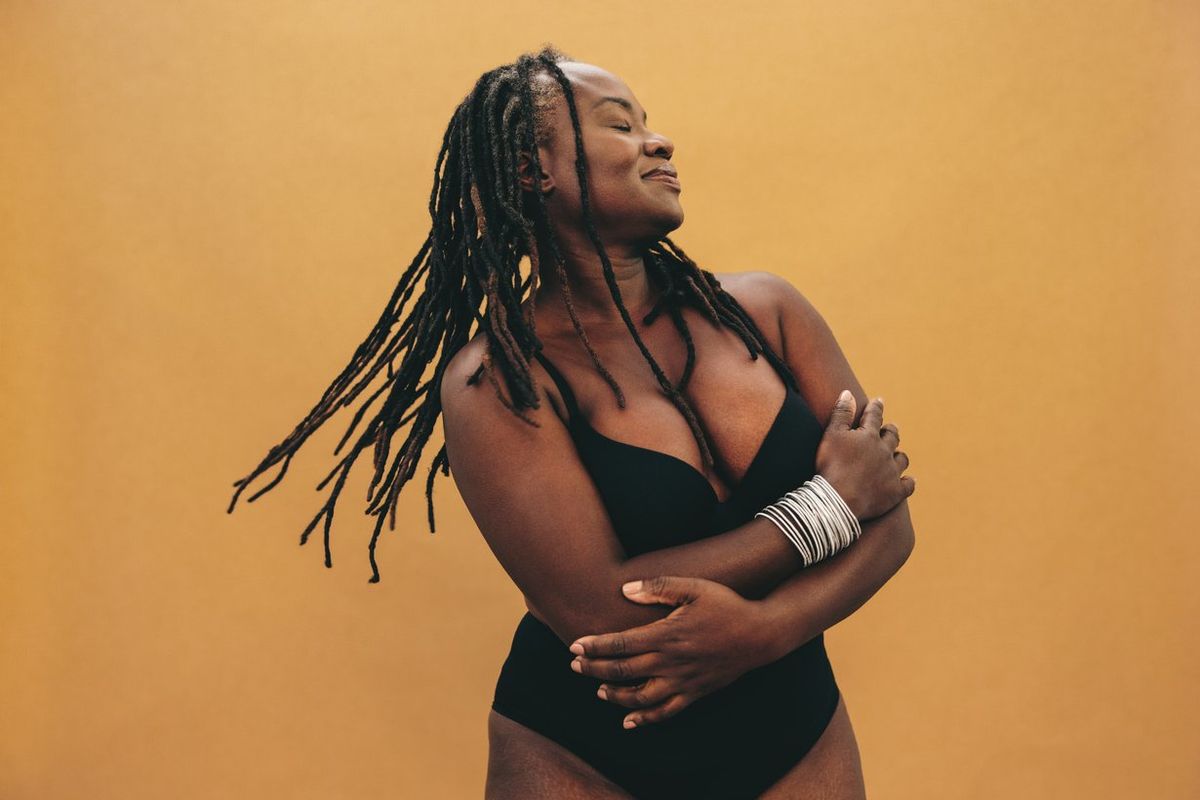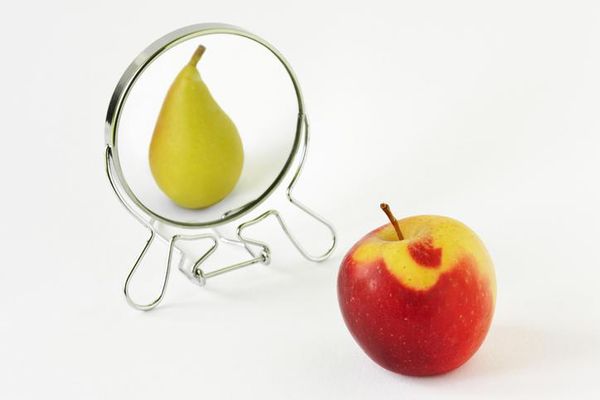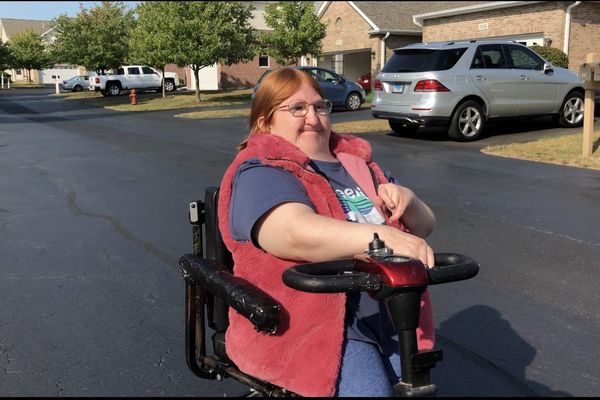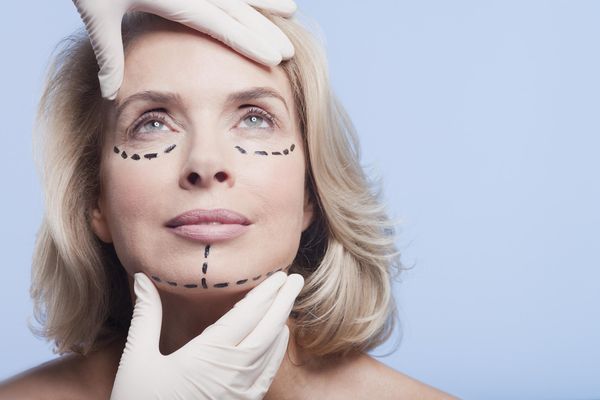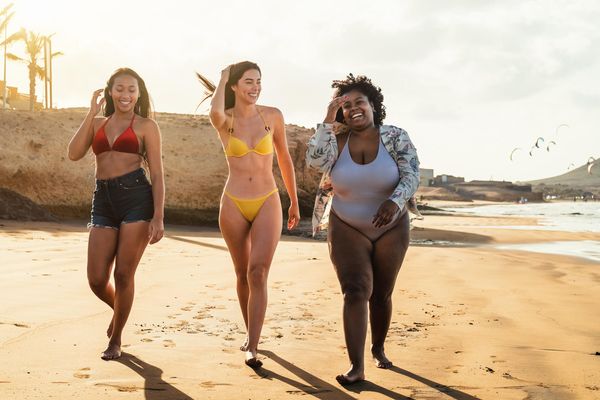Emily Jamea, Ph.D., is a sex therapist, USA Today Best-Selling author and podcast host. You can find her here each month to share her latest thoughts about sex.
There’s a comedy skit online featuring Tina Fey, Amy Schumer, Julia Louis-Dreyfus and Patricia Arquette joking about how Hollywood determines the age when a woman is no longer, ahem, sexually desirable (although, let’s just say that the word they use in the skit is a little cruder than that).
The idea is nothing new, but the sketch brings to light ageism and the completely unachievable beauty standards that are linked to sexuality and reinforced and spread by the media.
Thanks to Hollywood, social media and porn, many are left thinking that sexuality is only meant for young, stretchmark-free and able-bodied people.
I’m here to bust that myth.
Read: Yes, You Do Need Sex at Every Age >>
Body image, what you think about your physical appearance, has a profound impact on various aspects of life, including emotional well-being, self-esteem and interpersonal relationships. The link between body image and sexuality is one of the most impactful as it broadly shapes how we perceive ourselves as sexual beings and influences our experiences of intimacy across many domains.
Body image isn’t confined to aesthetics; it’s intricately woven into your entire self-concept. How you view your body influences your self-worth, confidence and mental health. I always say that our sexuality is inextricably linked to our individuality. Therefore, anything that affects your sense of self is going to inform the way you feel about yourself sexually. When it comes to sexual desire, a positive body image can encourage an individual to embrace their sensuality and engage in intimate experiences with enthusiasm. A negative body image, on the other hand, can lead to feelings of insecurity, shame and anxiety, which can hinder the ability to fully enjoy and engage in sexual activity.
The entertainment industry often reflects narrow and unrealistic standards of beauty, which creates an environment where people feel like they have to match an idealized appearance. These standards can shape perceptions of what counts as an attractive body, leading to comparisons and self-criticism. The pressure to conform to these ideals can significantly affect your body image and, as a result, influence sexual desire. Rarely does the media show older adults engaging in erotic connection, which leaves many people feeling like sex is not part of life after a certain age.
Read: Why I’m Speaking Up About Toxic Beauty Standards >>
Porn is perhaps one of the biggest offenders of body image and sex, portraying borderline caricatures of normal human bodies. The promotion of unattainable beauty ideals can foster feelings of inadequacy. Being preoccupied with worries about your appearance can create a barrier between you and your ability to fully engage in and enjoy intimate moments.
A positive body image can contribute to a healthier sense of sexual desire and satisfaction. When you feel comfortable and confident in your body, you’re more likely to communicate openly with your partner about your desires and boundaries. This transparency can lead to a more fulfilling sexual experience for both partners, as you work together to create an environment of trust and mutual understanding.
On the other hand, a negative body image can introduce challenges to intimacy. You may avoid certain sexual activities or positions due to discomfort with your appearance. Feelings of self-consciousness or shame can diminish the ability to be present in the moment and fully enjoy the experience. This phenomenon, referred to as “spectatoring,” happens when you feels as though you’re looking at yourself from the outside in as opposed to feeling fully immersed in the experience.
Read: Good Sex with Emily Jamea: How Can Mindfulness Improve Sex? >>
Negative body image can lead to sexual avoidance altogether, affecting not only your personal well-being but also the health of your relationship. In extreme cases, because of the link between poor body image and low self-worth, people with a negative body image may engage in risky sexual behaviors because they don’t see themselves as worthy of healthy, safe sex.
Here’s how to foster a positive body image in a way that increases sexual desire and satisfaction.
1. Self-compassion. Self-compassion is different from self-esteem, which is the degree to which we evaluate ourselves positively or negatively and is often based on comparisons to others. Self-compassion, on the other hand, can be thought of as a way of relating to ourselves, free of judgments or evaluations. Practicing self-compassion helps us feel more accepting of our imperfections. It makes us feel like imperfection is part of the human experience.
2. Mindfulness. Mindfulness techniques can help combat that pesky spectatoring phenomenon I mentioned before. These techniques teach people to simply notice intrusive thoughts without judgment and reaction and redirect attention to the sensations of the body and emotions in the moment.
3. Communication. Open and honest communication with your partner is pivotal in creating an environment where you can both express your desires and concerns. Sharing your insecurities can feel vulnerable, but it is an important step toward fostering intimacy. It also gives you and your partner the opportunity to collaborate on ways to support positive body image.
4. Education and exposure. Learning about the diversity of bodies, normalizing natural changes and recognizing that beauty comes in various forms can reshape perceptions. Exposure to diverse representations in media can contribute to a more accepting view of oneself. I encourage my clients to look at porn of people whose bodies are similar to their own. This helps create a positive link between body diversity and sexual pleasure.
5. Professional support. If you’re struggling with a deeply ingrained negative body image, seeking the guidance of a therapist or counselor who specializes in body image issues can provide tools for reframing perceptions and building self-esteem.
Body image and sexual desire are naturally connected parts of an individual’s identity. By challenging societal standards, nurturing self-compassion and practicing open communication, you can work toward embracing your body and nurturing your sexual desires in a way that supports overall well-being and a fulfilling intimate life.
Everyone is entitled to sexual well-being regardless of size, shape, scars, wrinkles, ability and so on. And that definitely includes you.
- You're Not Alone Facing Obstacles to Sex ›
- Good Sex with Emily Jamea: How Can Mindfulness Improve Sex? ›
- What's Your Sexual Self-Esteem? ›
- 9 Tips for Improving Body Image and Intimacy ›

